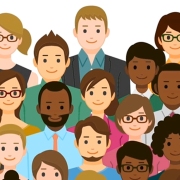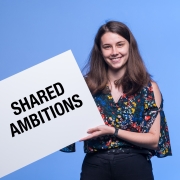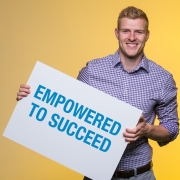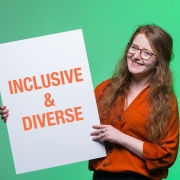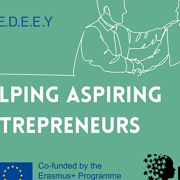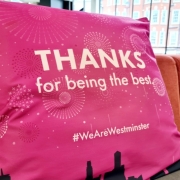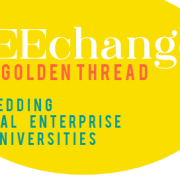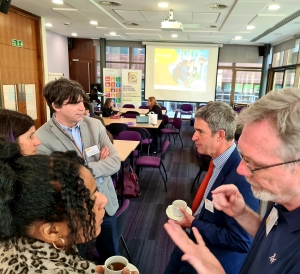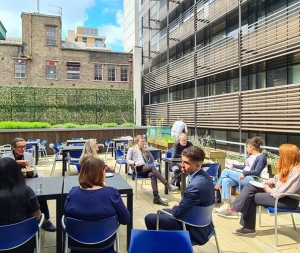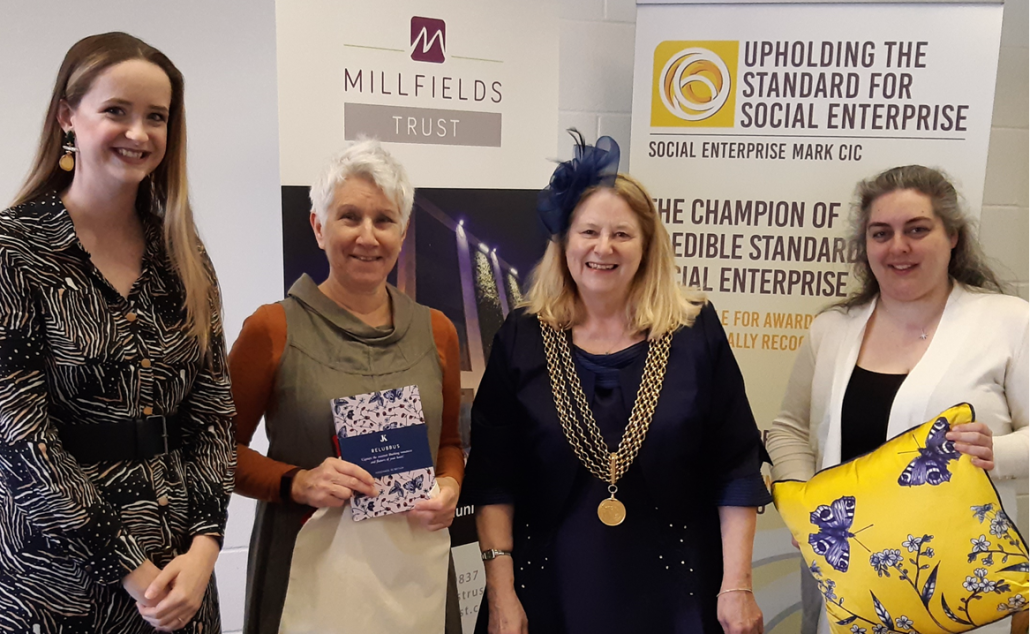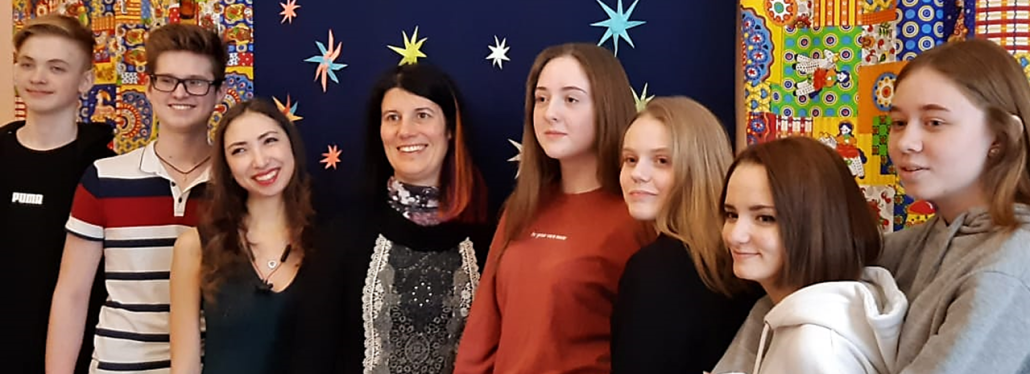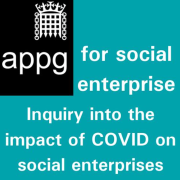This website uses cookies so that we can provide you with the best user experience possible. Cookie information is stored in your browser and performs functions such as recognising you when you return to our website and helping our team to understand which sections of the website you find most interesting and useful.
Posts
Dispelling the myths of Social Enterprise, Employee Ownership and Purposeful Business
It is frustrating that the wider world tends to have a very narrow understanding of what the key characteristics of being a good business are. This is not helped by the media’s portrayal of a macho business world in programmes such as The Apprentice and Dragon’s Den and follows the news that often focuses on corporate scandal and businesses that are solely focused on the delivery of profit for shareholders at the expense of other models of business.
The rise of the ‘Purposeful Business
This polar focus is not the reality as most business owners and stakeholders realise that there is more to being a business than just making a financial profit, particularly in the light of climate change. The rise of the ‘purposeful business’ has become a noticeable trend over the last few years. These types of businesses should aim to tackle the UN’s Sustainable Development Goals and address the negative effects of economic development.
One of the main ways to ensure that a business is driven by a social purpose and social impact though is to embed this in the governance of the business through either a specific legal structure/form such as a Community Interest Company (CIC) or an Industrial and Provident Society (IPS) that can limit shareholder financial gain.
Another way to ensure that a business is social values-driven is to write purpose, values and rules into governance both within governing documents and via the modus operandi of the Board of Directors and in the interaction with stakeholders. This means that such a business can have a variety of legal forms. Social enterprises (SEs) and employee owned businesses (EOs) are good examples of these types of business. The Social Enterprise Mark ensures that that there is rigour in this approach by accrediting governing documents, trading levels and social impact.
Below we look in more detail at the overlap between the two and bust some myths associated with both:
Why consider employee ownership?
Becoming an employee-owned business intrinsically helps to create a people-centred business that values its staff. As the first large law firm in the UK to give all eligible members of staff an equal share in its profits, Stephens Scown is leading this approach and attracting interest from beyond the legal sector. In their experience, employee ownership means staff become more engaged and motivated to achieve growth with a view to the wider ethos and impact of the business. It also promotes a culture focused on each person’s contribution to the business and this in turn can support the development of a purposeful business.
The link between employee ownership and social enterprise
Becoming a social enterprise creates a values-led business because it puts people and planet before profit for shareholders. The Social Enterprise Mark has 12 years’ experience of applying and accrediting this approach internationally in all sectors. Additionally, in many cases there is an overlap between social enterprises and employee owned businesses because of the close relationship to values and valuing people. A good example of this is Social Enterprise Gold Mark Holder Integrated Care 24 urgent care providers which have offered company shares to all employees with the aim of gaining better staff engagement and ownership.
Myths around EO and SE abound, though. Here we outline a few of them:
Employee ownership and social enterprise models only work for a certain size of company
Not true… The John Lewis Partnership is a longstanding example of a large employee owned business. Market Carpets in Devon with 29 employees is a smaller example. In the social enterprise world we have a number of mark-holders with multi-million pound turnover such as University of Westminster and The Growth Company.
All the shares must be held by employees in the case of EO
A founder in an EO may wish to retain a shareholding as they are not retiring or it may be a family business with family members actively working in the business.
A social enterprise cannot have shareholders
Most do not have shareholders, but there are shareholder models such as Community Interest Companies Ltd by Shares and Community Benefit Societies but any dividend distribution is either zero or limited to 35% of profits. At Social Enterprise Mark, a dividend cap of up to 49% of profits is also acceptable.
The employees use their own money to buy the company in the case of an EO
Not true…the company could seek bank funding but usually the purchase price is settled using the profits of the company over a period of time.
Both SE and EO are very niche rather than mainstream business models
Not true – in January 2021 it was found that employee ownership represented 1 in 20 private company sales. It is estimated that there are more than 100,000 social enterprises in the UK. So long as the business is maximising social value rather than profit for individuals the many businesses could qualify as Social Enterprise’s for the Social Enterprise Mark.
A founder/shareholder (if a social enterprise has shareholders) will lose money if they choose Employee Ownership or Social Enterprise over a trade sale/company sale
True and false in both cases – it may be that the perfect purchaser wants to buy the company for more than it is worth because it fits into their strategic plan or the company is their main supplier in the case of an EO. If certain criteria are met, choosing employee ownership can be advantageous from a tax perspective for a founder as there is a capital gains tax exemption if at least half the business becomes employee owed. In the case of a CIC limited by shares, shares can be sold at a rate that a buyer is prepared to pay. This rate is likely to be limited, however, due to the limitations placed on assets and profit distribution.
If a business is employee-owned the employees could do what they like with it!
Not true – the company’s managers are accountable to the employees rather than external shareholders. If the company has a governing document, this will usually set out how decisions should be made and if certain criteria should be prioritised in decision making such as the likely impact on the climate or employees of a decision.
A social enterprise can be sold to a private company and lose its social enterprise status
True and false – a social enterprise should have some form of asset lock which maintains its independence from its parent that it is sold onto. In the case of the Social Enterprise Mark accreditation there’s a requirement that any parent company also holds an asset lock or can demonstrate a business case as to why it doesn’t (in very rare cases)
Offering different legal structures for a business out outside the Company Ltd by Shares model helps to ‘bake in’ social impact for employees and stakeholders.
Greater understanding and uptake of these models would help to ensure that social and environmental action are part of the business DNA.
We need greater profile of these alternatives rather than resorting to more common legal forms which put individual shareholder gain at the centre.
As the old saying goes ‘legal form should follow business function’.
By Catherine Carlton (Stephens Scown LLP) and Lucy Findlay (Social Enterprise Mark CIC)
EDEEY: Helping Aspiring Entrepreneurs Conference
The Ethical Digital Entrepreneurship for European Youth (EDEEY project) conference will showcase online learning platform that supports aspiring #entrepreneurs who are starting out on their ethical and social enterprise journey.
At the London conference you will hear from young people who are winners in the EDEEY competition to come up with a business idea and create a business plan. Expert speakers at the conference include our own Lucy Findlay MBE along with Christina Bonarou from Symplexis (Greece) and Sculpt’s Chief Executive Dr. Claire Bonham.
The learning platform has four available courses on:
1. Business Planning
2. Access to Finance and other support for your enterprise
3. Social Media and Content Marketing
4. GDPR and Digital Skills
Sculpt will be sharing the pilot cohort experience of the training resources in the UK, Cyprus, Czech Republic and Greece, and there will also be an opportunity to explore the online learning platform.
Lucy Findlay MBE says, “I am pleased to support the work of Sculpt. It’s really important for young people to find a source of support and guidance in their aspirations to help create a better world as well as to network and share with those with who have the same values.”
Book your place to attend in-person 22 June 2022 here.
Download the conference flyer here: Sculpt – EDEEY Conference JUNE 2022
The Golden Thread: Embedding social enterprise for better student outcomes
All professional worlds have their own jargon. The term ‘being student-centred’ is an important one for universities, but can be a challenge to achieve for an institution that has so many competing priorities. The increasing politicisation of the university world has also led to challenges around what exactly this term means.
On 25th April 2022, we held our first face-to-face networking meeting as part of a collaboration conference, for two years at the University of Westminster, one of our Social Enterprise Gold Mark holders. It was a really exciting and energetic event. The summary report can be found on our website.
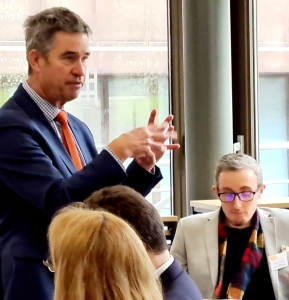 Being more student-centred around social enterprise was a key topic flagged up at the event. Dr Peter Bonfield, Vice Chancellor at University of Westminster said that 1 in 5 of their students go on to set up their own businesses, with many looking to make a difference to society and create a better world. Generational trends show that Generation Z are much more socially and environmentally conscious with many dedicated to fighting social and environmental change.
Being more student-centred around social enterprise was a key topic flagged up at the event. Dr Peter Bonfield, Vice Chancellor at University of Westminster said that 1 in 5 of their students go on to set up their own businesses, with many looking to make a difference to society and create a better world. Generational trends show that Generation Z are much more socially and environmentally conscious with many dedicated to fighting social and environmental change.
Mission and values are therefore of increased importance to students in gaining a higher education. They also want to see evidence of how these are being delivered at all levels of the institution. This is why the social enterprise business model is so crucial. It provides the framework for a business that is creating social and environmental value as its raison d’etre. It links directly into, for example, the delivery the UN’s Sustainable Development Goals (SDGs) and civic responsibilities.
It is not a by-product; it is a state of mind and culture – the Golden Thread.
Findings from our conference show that there is a need to make better connections between the different threads from the student’s point of view, both inside and outside the teaching environment. For instance, extra-curricular activity needs better academic credit as well as making the better links to local social enterprises by bringing the ‘outside in’ through knowledge exchange (KE) activities.
Finance is another area that needs greater connection and thought. Many universities are still not embedding social value with equal emphasis to financial value into their finance modules themselves. This leaves a disjointed approach whereby social value often sits separately in a different function within the institution.
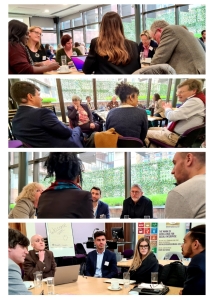 Achieving the right advice and type of funding and support is also a challenge with much start-up funding and support focusing on a narrow base of STEM and high growth companies. Pitching competitions can also act as a barrier as many more socially motivated and marginalised students to not feel confident in this style. We need more links to peer-to-peer lending and support programmes outside the university setting as well as pivoting internal university support (including pump priming and growth capital) to help social enterprises grow sustainably.
Achieving the right advice and type of funding and support is also a challenge with much start-up funding and support focusing on a narrow base of STEM and high growth companies. Pitching competitions can also act as a barrier as many more socially motivated and marginalised students to not feel confident in this style. We need more links to peer-to-peer lending and support programmes outside the university setting as well as pivoting internal university support (including pump priming and growth capital) to help social enterprises grow sustainably.
When a university shows leadership in this area, we see jigsaw pieces come together for students too. There are good examples of how universities, such as Westminster (that hold our Gold Mark) have done this as set out in my joint article with Diana Beech for HEPI.
By making more distinctive links between student’s needs, teaching, the community, research and values, we see the best outcomes for a supportive environment and greater sustainability for all in the longer term.
Managing Director, Social Enterprise Mark CIC
SEEchange Collaboration Conference
On Monday 25th April 2022, Social Enterprise Mark CIC and Cambio: House of Social Change came together for SEEchange THE GOLDEN THREAD collaboration conference focused on the universities sector and social enterprise engagement.
The conference was delighted to welcome a diverse range of expert speakers and roundtable facilitators and the input, energy and enthusiasm throughout the day whether in the thought-leader sessions, panel Q&A, roundtables or networking…. There was certainly a lot of valuable networking going on, which is fantastic!
Feedback from the conference has been really encouraging in that people enjoyed being ‘in the room’ and being a collective has allowed for those adhoc conversations and meet ups that often bring opportunity and action, perhaps an element of dialogue that is often hard to simulate on a Zoom call.
“Absolutely outstanding conference yesterday… making many new connections!”
“Really energetic discussion on our table!”
“Excellent event…. Great speakers with short talks, lots of networking… Superb hospitality.”
For those who attended the event thank you for letting us know what comes from the event for you and your organisation…. new connections, new opportunities, a contract or collaboration of like-minded enterprises. We’d love to hear about it!
Finally, a short summary is available to download here SEEchange Conference SUMMARY April 2022 Final and we’re very much looking forward to the Pioneers Post article so please keep an eye on our social media channels for that release soon!
It is really important that we acknowledge the kind support from our partners who enabled this event to take place:
- Cambio: House of Social Change for co-hosting the conference.
- University of Westminster for the wonderful event space and hospitality.
- CUSE Launch for sponsorship and wider engagement.
- Pioneers Post as our event Media Partners.
IWD Women’s Networking – Back in the Room!
Our first in-person networking event of 2022 to celebrate International Women’s Day 2022 was a great success and so lovely to see so many inspiring women attending.
In partnership with our office landlords Millfields Trust, we co-hosted this women-led networking event as we celebrated IWD at the Millfields Trust. Our co-hosted event was over subscribed and attended by women across the City from all different sectors. We all enjoyed an inspiring and engaging presentation from Jenny Evans who works at YTKO, as part of their fully funded Outset programme, helping other start-ups and entrepreneurs succeed and follow their passions!
Jenny offered valuable advice of how to #breakthebias for women in business having experienced difficult situations herself throughout her time of running her own businesses.
We felt very honoured to have the presence of the Lord Mayor, Councillor Terri Beer who presented gifts personally made by Jenny Evans; a pure silk cushion and notepad, as well as a free 1:1 Marketing Masterclass from the SEM CIC current Marketing Lead Sallie Ryan.
The lucky winners were: Louise from Go South West and Antionio of Rhizome Artists’ Collective.
Thank you to all who attended and made our first event of the year a great success!
#IWD2022 # BreakingBusinessBias
IWD Reflections for 2022
Welcome to a very poignant International Women’s Day.
This year it is so sad to remember where I was 2 years ago when I celebrated with my Siberian peer exchange and good friend Irina Makeeva and her family in Novosibirsk, followed by a trip to see Swan Lake. In the days following, I met so many amazing people interested in and actively engaging in making a difference to their local and regional economies through social enterprise and social innovation.
One of my most abiding memories, however, was when I listened to a disabled girl sing a popular tune at the local folklore school with her friends. She sang with so much passion and hope. She was due to sing the song with the star Jasmin who made the song a hit later that year, but then Covid19 intervened.
This year we have agreed with our Russian peers that we need to support one another symbolically – Women in Solidarity. We are making a small gesture of cooking each other’s national dishes. I have just made a big pot of Borsht!
Today we also celebrate a year of our Women’s Leadership Network which was launched on IWD21. In a world where women often don’t identify with the term ‘leader’ we have together to exchange stories, tips and thoughts from inspirational women. These are now all recorded and can be viewed on our YouTube channel. At today’s event we will be hearing from Daniela Papi-Thornton who will be speaking about her leadership journey and thoughts on reclaiming social entrepreneurship from the niche.
On Wednesday we are extending our celebrations to partner with out friends at Millfields Trust to run another women’s networking session in Plymouth on the theme of Breaking the Bias featuring Jenny Evans, an award winning young entrepreneur and artist. She studied textiles at Cardiff Metropolitan University, has won Santander’s University Entrepreneur’s national competition in 2017, and went on to set up a high growth, investor backed business in 2018 after raising a seed round of £350,000. It’s not too late to sign up!
Managing Director, Social Enterprise Mark CIC
#BreakTheBias #IWD2022
APPG Inquiry into the impact of COVID on social enterprises
Great to hear from Charles Courtenay (Earl of Devon) Liz Minns Social Enterprise UK Karen Lynch (nee Borsberry-Woods) Lindsey Hall Real Ideas Organisation as some of the Panelists at the #APPG Inquiry Report Launch on behalf of Lucy Findlay MBE who contributed to the #socialenterpise sector evidencing on behalf of Social Enterprise Mark CIC and #SE_Mark Holders.
The role of the Inquiry was to investigate the impact of COVID on social enterprises and what lessons can be learned.
The UK’s 100,000 social enterprises experienced the pandemic in a unique way having to balance both increased demand from those people they support and pressure on their business. Many adapted their business models and pivoted to support their communities at a faster rate than their peers.
The inquiry identified four key themes during the course of its work.
- Lack of understanding of social enterprise across HM Government
- The importance of place-based working and local delivery
- The vital contribution of social enterprises to public services
- The substantial opportunity for social enterprises to contribute to the UK’s recovery and levelling up after the pandemic
Resonant themes include localism, joined up working, social economy and move of #socent to Department for Business, Energy and Industrial Strategy (BEIS)… lots to unpack, well worth a read.
📔 3 mins and a good ☕️
READ MORE and download the full report:
Inquiry into the impact of COVID on social enterprises » Social Enterprise UK
Events
Nothing Found
Sorry, no posts matched your criteria

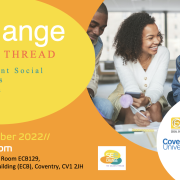
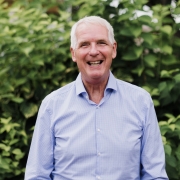
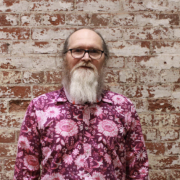 Gareth Hart Iridescent Ideas CIC
Gareth Hart Iridescent Ideas CIC